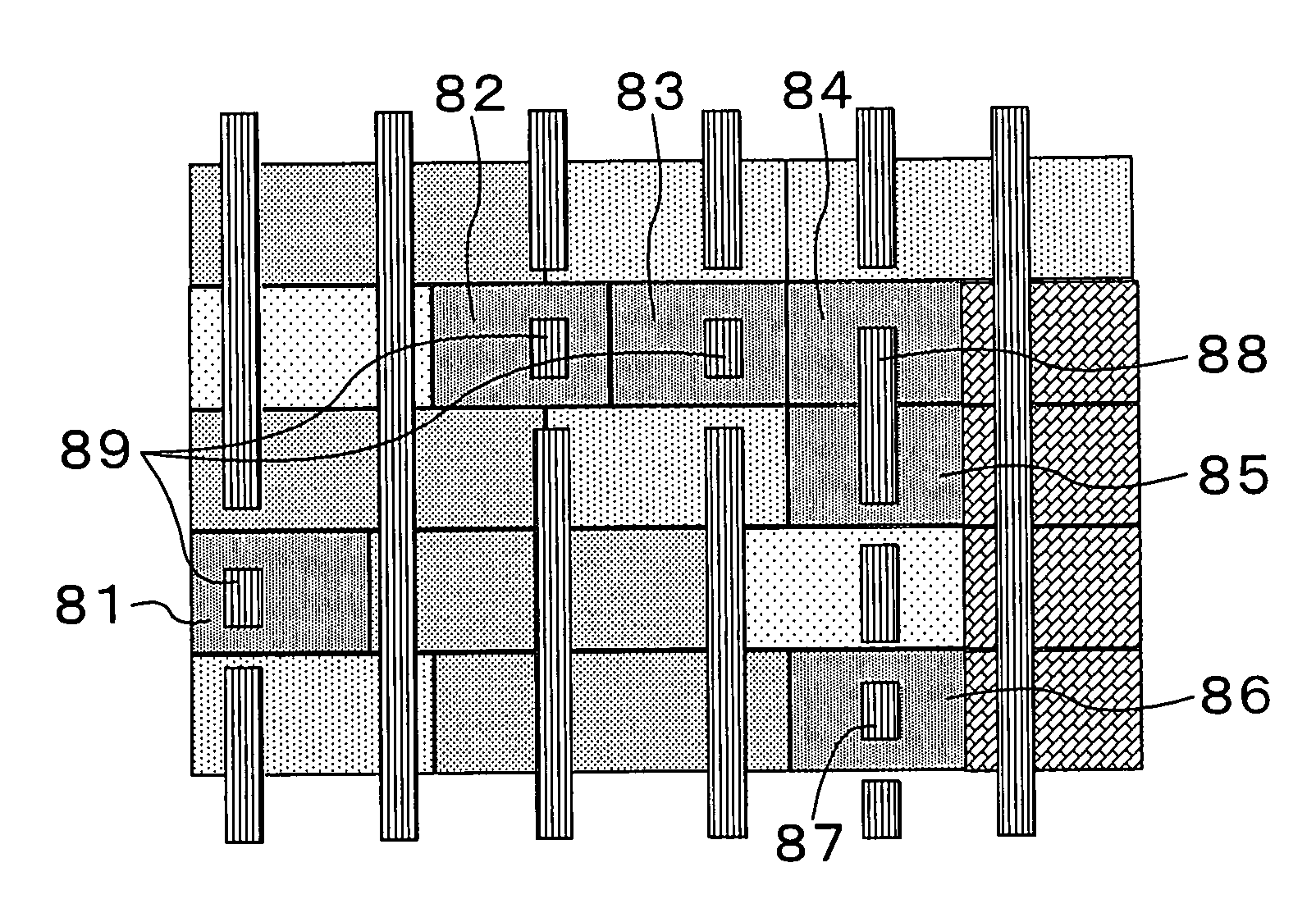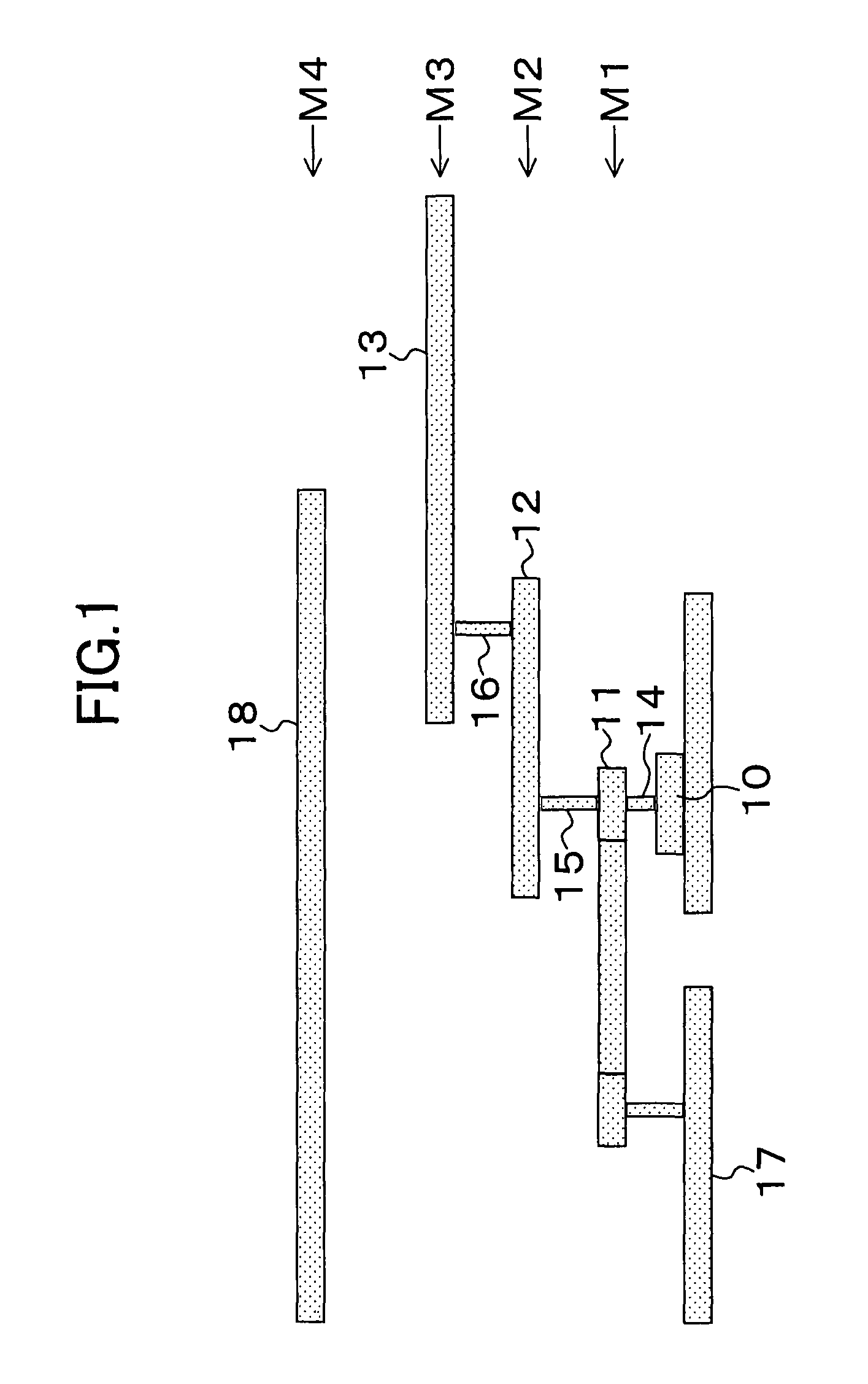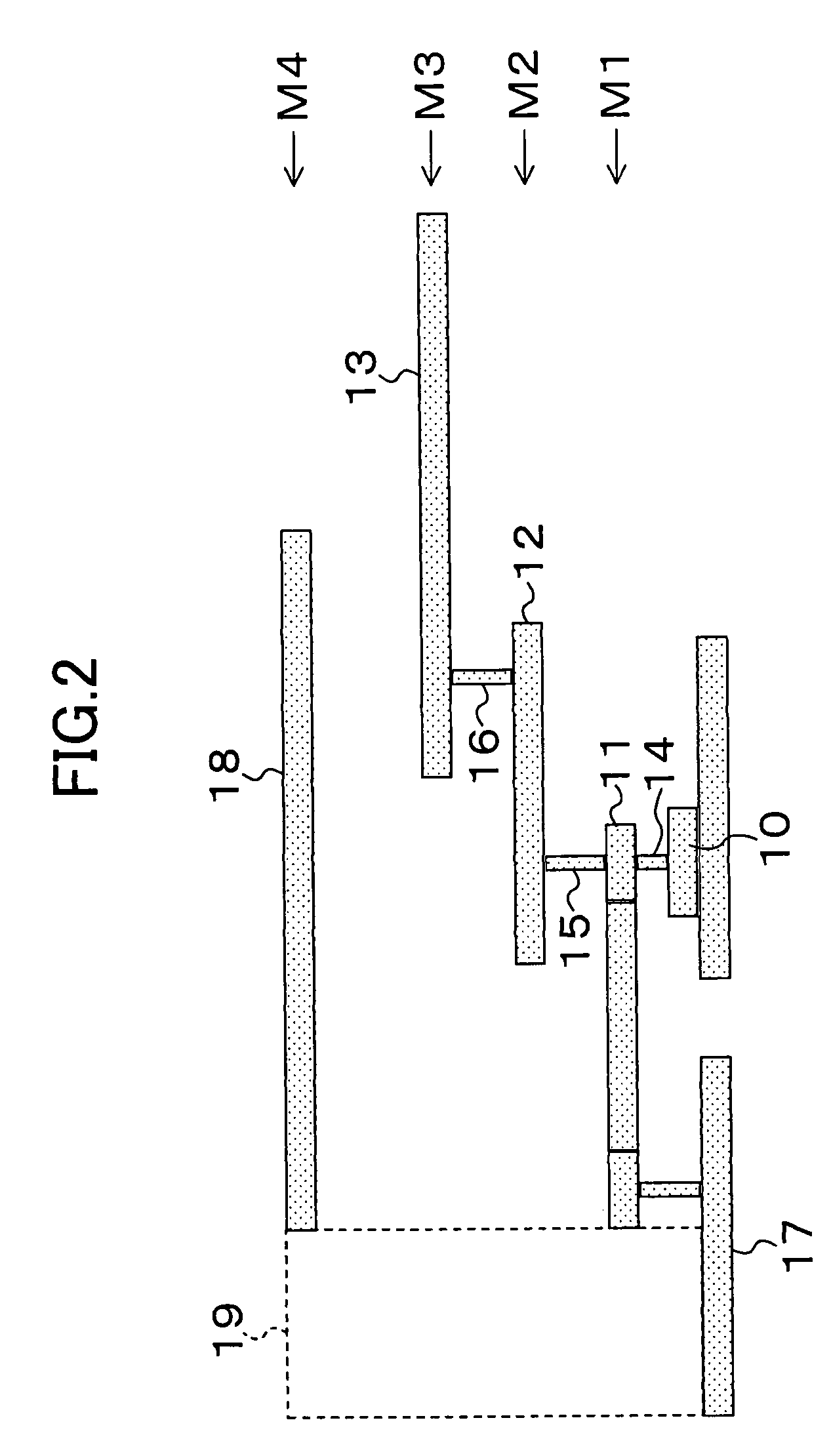Semiconductor device and semiconductor device layout designing method
a semiconductor device and semiconductor technology, applied in the direction of burglar alarms, mechanical actuation of burglar alarms, instruments, etc., can solve the problems of more serious antenna damage, plasma charging damage, and semiconductor elements, so as to achieve the planarization of the chip with ease, avoid antenna damage, secure the effect of wiring efficiency
- Summary
- Abstract
- Description
- Claims
- Application Information
AI Technical Summary
Benefits of technology
Problems solved by technology
Method used
Image
Examples
embodiment 1
[0127]FIG. 1 is a sectional view showing a configuration of a semiconductor device according to Embodiment 1 of the present invention. In FIG. 1, reference numeral 10 denotes a gate, 11 denotes a wiring in a metal wiring layer M1, 12 denotes a wiring in a metal wiring layer M2, 13 denotes a wiring in a metal wiring layer M3, 14 denotes a contact which connects the gate 10 and the wiring 11, 15 denotes a first via which connects the wiring 11 and the wiring 12, 16 denotes a second via which connects the wiring 12 and the wiring 13, and 17 denotes an antenna protection element (a diffusion region). The antenna protection element 17 is connected electrically to the gate 10 by means of the wiring 11 in the metal wiring layer M1.
[0128]The wirings 11, 12, 13 form a first wiring connected to the gate 10. In a metal wiring layer M4 above the first wiring, a wiring 18 as a second wiring is formed.
[0129]FIG. 2 is a sectional view showing a configuration of a conventional semiconductor device,...
embodiment 2
[0158]FIG. 13 shows a general layout of a semiconductor device. In FIG. 13, a plurality of cells including antenna protection elements 131 are arranged, and source wirings 132, 134, 135 and signal wirings 133, 136, 137 are routed in layers above the cells. In general, as shown in FIG. 13, source wirings and signal wirings are formed in layers above antenna protection elements in many cases. For example, the source wiring 134 is formed in the layer above the antenna protection element 131. This reduces the amount of the UV light irradiated to the active region, lowering the performance of the antenna protection element.
[0159]In Embodiment 1, an area where wirings and dummy patterns can be arranged is estimated through antenna damage verification on the assumption of the performance of the antenna protection element from an overlap area between the antenna protection element and a wiring thereabove after completion of routing.
[0160]In some layouts, however, error would be caused in an...
embodiment 3
[0166]In Embodiment 2, the amount of the UV light irradiated to the antenna protection element is increased by changing the shape of a wiring pattern above an antenna protection element, for example, by deleting a part of the wiring which is located above the antenna protection element. As to a signal wiring above the antenna protection element, however, change in shape and cutting are difficult in view of the timing and the logic. Further, when an antenna protection element is arranged in a region congested with signal wirings, the area of the antenna protection element to which the UV light is irradiated reduces to lower the performance of the antenna protection element.
[0167]In the present embodiment, the UV light irradiated to the antenna protection element is secured by limiting in advance an amount of wirings running above an antenna protection element.
[0168]FIG. 17 shows a layout of a semiconductor device. FIG. 17 indicates a virtually set window 171 in the same layout as tha...
PUM
 Login to View More
Login to View More Abstract
Description
Claims
Application Information
 Login to View More
Login to View More - R&D
- Intellectual Property
- Life Sciences
- Materials
- Tech Scout
- Unparalleled Data Quality
- Higher Quality Content
- 60% Fewer Hallucinations
Browse by: Latest US Patents, China's latest patents, Technical Efficacy Thesaurus, Application Domain, Technology Topic, Popular Technical Reports.
© 2025 PatSnap. All rights reserved.Legal|Privacy policy|Modern Slavery Act Transparency Statement|Sitemap|About US| Contact US: help@patsnap.com



